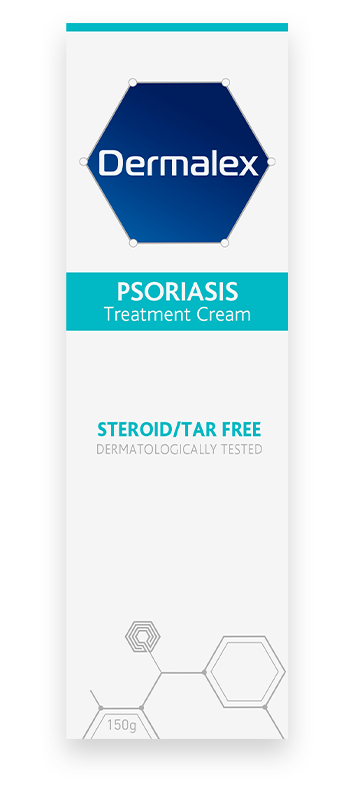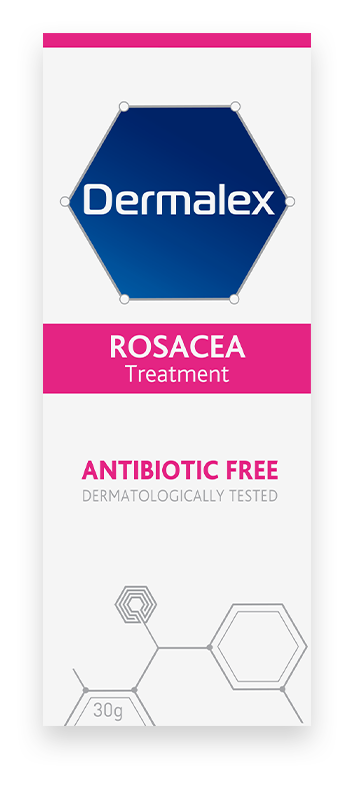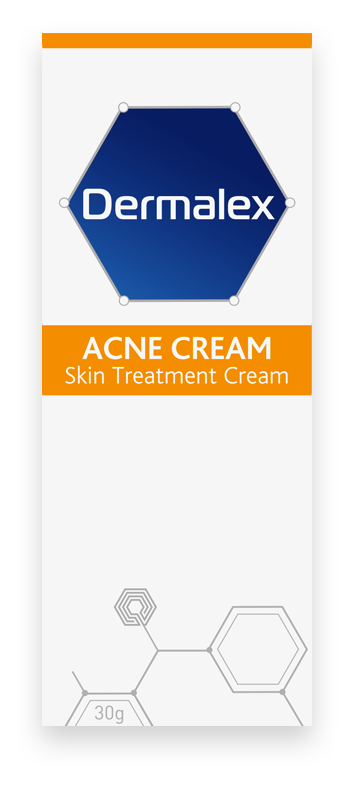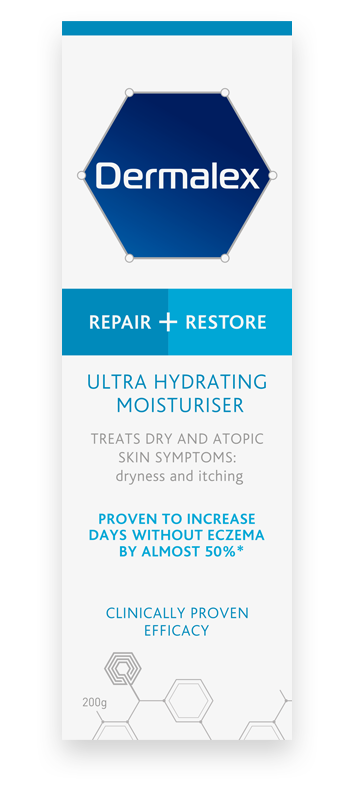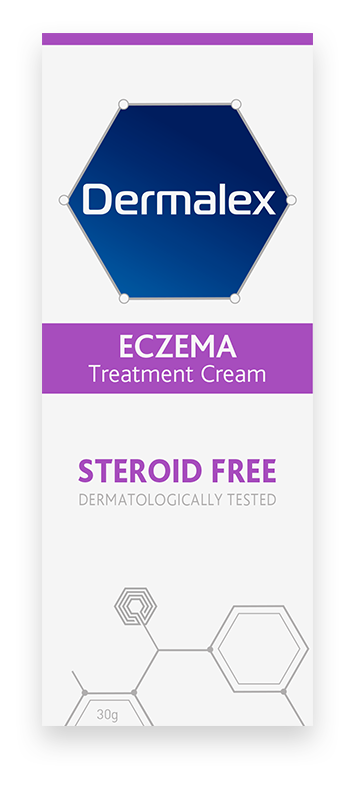What’s the Difference Between Eczema and Psoriasis?
Red, dry, itchy skin? Can’t stop scratching? Two common culprits are the skin conditions eczema and psoriasis. Google will likely tell you it’s the former (if you look up your symptoms), but how can you tell? In fact, there are some clear distinctions between the two. A doctor will likely need to make the final call, but here’s the difference between eczema and psoriasis. Let’s take a closer look.
The difference between eczema and psoriasis
Both eczema and psoriasis cause itching and patches of red, raised skin, which can appear on the same places of the body, such as the hands and scalp.[1] To the untrained eye, it’s difficult to tell what’s what.
Difference in itching
Generally speaking, eczema causes a more intense itching, so strong you can end up scratching your skin until it bleeds. While psoriasis is itchy too, it can also cause stinging or burning sensations, sometimes compared to the bite of a fire ant.[2]
Different areas of the body
Often, eczema will appear on parts of the body that bend, such as the elbows or behind the knees. It can appear in other places too of course, such as the hands, wrists, ankles and neck.
While psoriasis can appear on those areas of the body too, it can also appear on the face, soles of your feet and lower back. You may have patches elsewhere too, such as the eyelids or fingernails and toenails.
Difference in appearance
Both cause red patches, but with psoriasis, these tend to be thicker and the skin is more inflamed. They’re also more likely to be silvery and raised. A thick patch of white scales is characteristic of psoriasis.[3]
With eczema, skin will also be red and inflamed, but could also be oozing, or crusting. It can also cause rough, leathery patches which can be darker in colour.
Different triggers
Eczema, also known as atopic dermatitis, is usually caused by:
- Soaps
- Disinfectants
- Detergents
- Allergies
- Pets
- Pollen
- Dust
- Certain foods
- Humidity
- Stress
- Infections
- Heat
Meanwhile, while it shares some of these triggers (like stress and infection), psoriasis flare-ups can be caused by:
- Injuries to the skin (e.g. sunburn)
- Vaccinations
- Scratches
- Certain medications
Other differences
While sunburn can cause a psoriasis flare-up, sunshine can be good for easing symptoms. Meanwhile, this usually isn’t the case with eczema. Eczema can make people more sensitive to heat, and perspiration can lead to flare-ups.
What do eczema and psoriasis have in common?
It’s little surprise people get the two skin conditions mixed up. They have a similar red appearance, can appear in the same places – and let’s not forget the itching.
They can also both appear in children (although more children develop eczema than psoriasis, almost 1% of children have psoriasis[4]), and you should usually see a doctor for a diagnosis. What’s more, while they can be treated, neither condition has a cure currently.
Plus: neither are contagious. You cannot pass on the condition through touch, or if the skin is broken.
When do eczema and psoriasis start?
With eczema, it usually starts in babies or young children, often improving as children get older. While it’s possible to get it as an adult, e.g. through hormone triggers, it’s less common. In this case, it would usually be due to stress or hormone changes.
While you can get it at other ages, psoriasis usually occurs between 15-35, and is rare in babies.
What conditions are they linked to?
Eczema:
- Dry, sensitive skin
- Hay fever
- Asthma
Psoriasis:
- Diabetes
- Depression
- Heart disease
- Psoriatic arthritis
With both of these conditions, if you have a family history of it, you’re more likely to develop it.
How to treat eczema and psoriasis
While similar, how the conditions are treated differs slightly.
Eczema
Some treatments and ways to ease symptoms include:
- Moisturisers (applied every day)
- Antihistamines for severe itching
- Topical corticosteroids (creams & ointments to reduce swelling and flare-ups)
- Bandages to allow the skin to heal[5]
Self-care is also hugely important. There are changes you can make and rituals to follow that can ease symptoms and prevent further problems.
Know your triggers
Once you know your triggers, you can make efforts to avoid them, so try to pay attention. For example, do certain detergents or fabrics irritate your skin? Or, if heat makes it worse, you could try to keep your home cool, particularly your bedroom.
Change your habits
Try to look after your skin as best you can, for example:
- Pat your skin dry rather than rub it after showering
- Moisturise your skin morning and night, and after bathing
- Establish a good skin care routine
- Avoid harsh soaps or chemicals
Reduce damage from scratching
We know the temptation to scratch all too well, but truth be told, you’re likely making the situation worse. Scratching damages the skin, which itself can cause eczema to occur. Keep your nails short, rub the skin gently (rather than itch) and cover your skin to make breaking the skin more difficult.
Change your diet
In some people, certain foods can cause eczema, such as eggs and cows’ milk. Eliminating these could potentially help alleviate symptoms. But, you should speak to a GP before making any changes to your diet.
Psoriasis
With psoriasis, treatments typically fall into 3 categories:
- Topical – creams and ointments applied to your skin, such as steroid creams
- Phototherapy – your skin is exposed to certain types of ultraviolet light
- Systemic – oral and injected medications that work throughout the entire body[6]
Again, you can also make changes that could help you manage symptoms.[7]
Reduce stress
Try to manage stress levels, as this can trigger flare-ups. You could:
- Practice yoga
- Meditate
- Talk to friends/family
Dietary supplements
Tackle psoriasis from the inside out! Vitamin D and fish oil are just two examples of dietary supplements you can take that may help ease symptoms.
Live a healthier lifestyle
Avoid alcohol and quit smoking – these can worsen symptoms, or even trigger flare-ups. Also, diet plays a role in managing psoriasis, so eat healthily. Cut back on refined sugars, for example.
What’s more, cold water fish, seeds, nuts, and omega-3 fatty acids can reduce inflammation – so eat more of these.
Maintain a healthy weight
Being overweight or obese puts you at a higher risk of developing psoriasis, so take care to manage your weight. Some tips include:
- Reducing your intake of refined carbs and saturated fats
- Exercising regularly
- Eating more protein
- Loading up on fruits and vegetables
Living with a skin condition
Whether eczema or psoriasis, we understand the difficulties of living with a skin condition. There’s not only the itching and inflammation to deal with, but also the knock it can give your self-confidence. However, millions across the globe suffer from a skin condition, you’re not alone. While everyone is different, there are tried and tested tips that can alleviate symptoms or prevent flare-ups. Lifestyle changes can make a huge impact – but remember it can take time!
References
- Eczema vs. Psoriasis: Similarities, Differences and Treatments – Penn Medicine
- Psoriasis vs. Eczema: How to Tell the Difference – WebMD
- Psoriasis vs. Eczema Pictures: Face, Hands, and Legs – Healthline
- WHAT’S THE DIFFERENCE BETWEEN ECZEMA AND PSORIASIS? – AAD
- Treatment -Atopic eczema – NHS
- Treatment -Psoriasis – NHS
- 12 Ways to Treat Psoriasis at Home – Healthline


